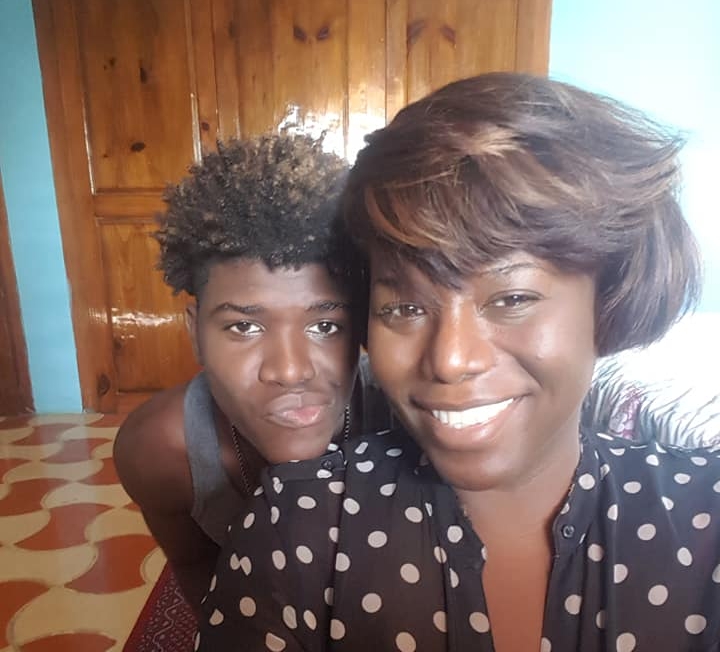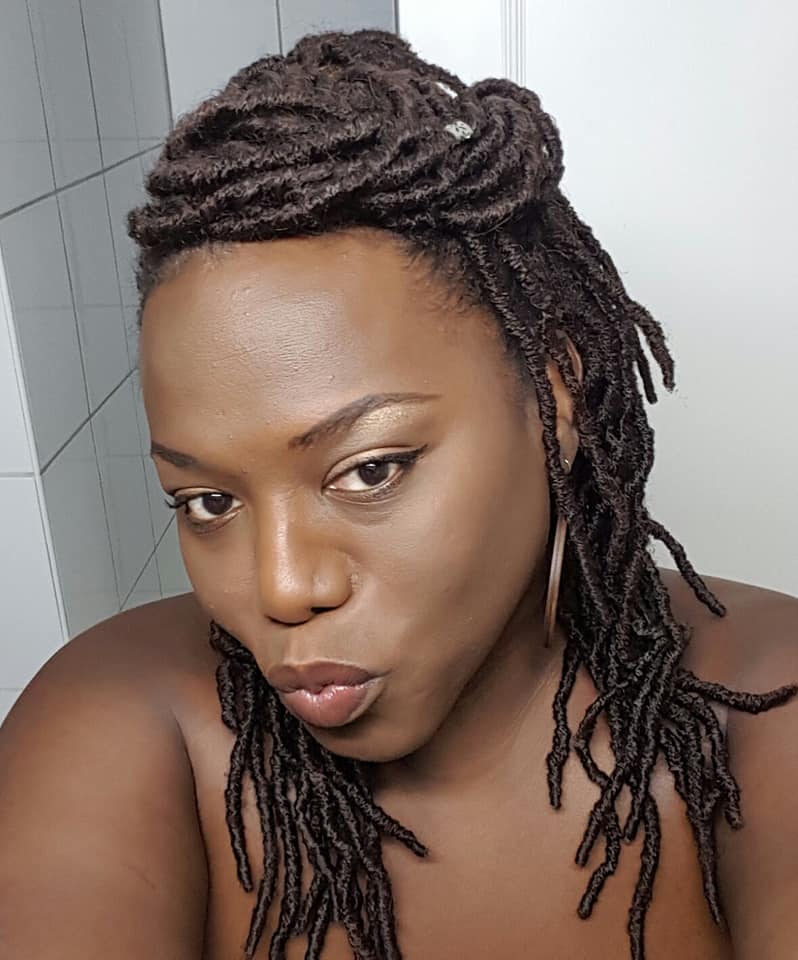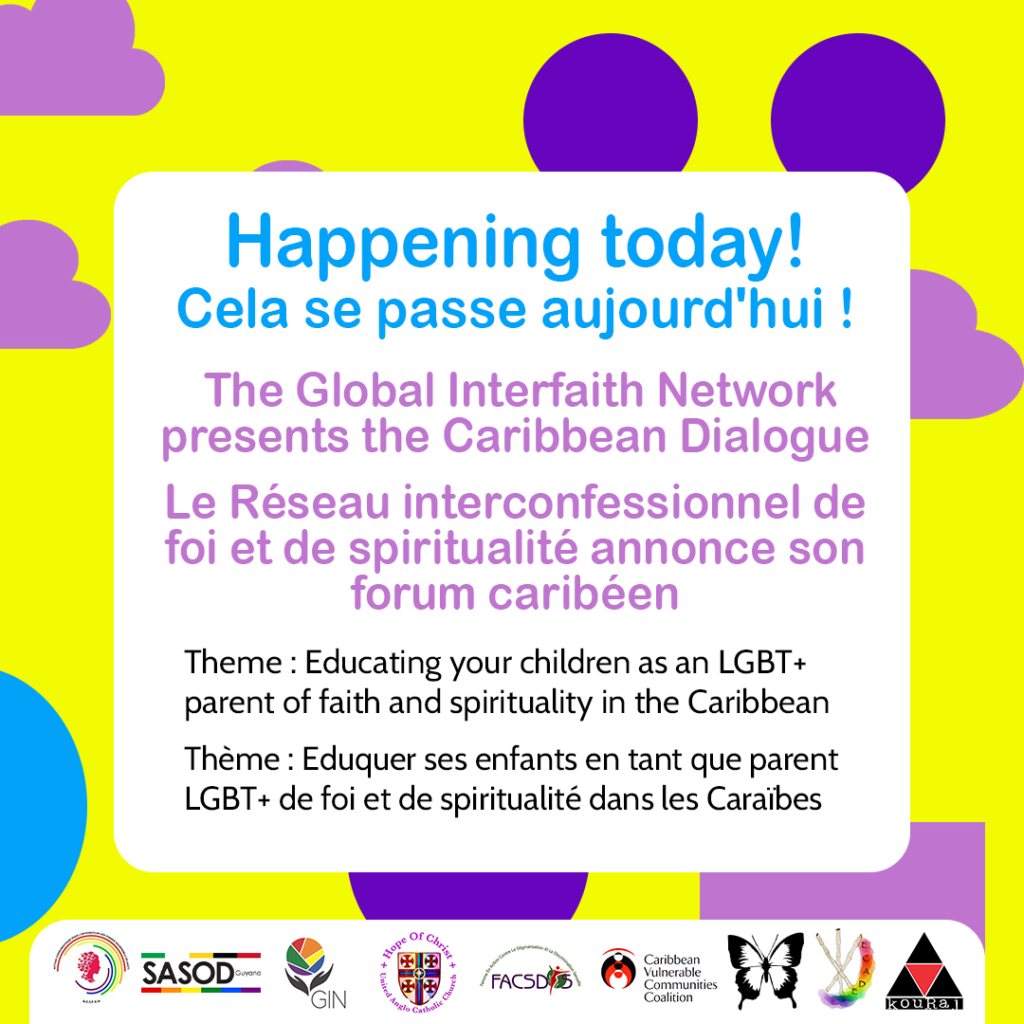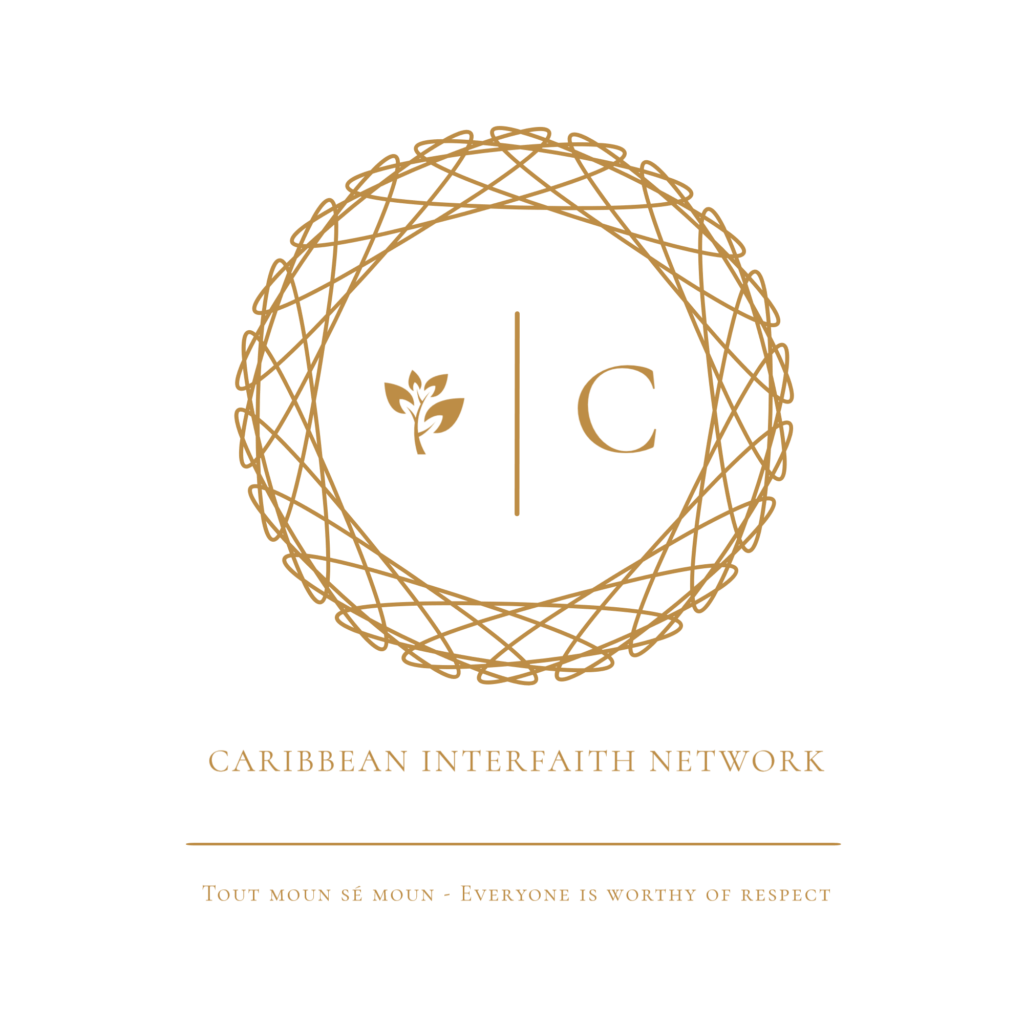Confessions of an Afro-Caribbean trans Christian grandmother
Moïse Manoël-Florisse, is an African-Caribbean online journalist keeping an eye…
Life as a married Christian trans woman in Florida and Haiti.
CLICK to receive an email notice of each new article on Erasing 76 Crimes

Yaisah Val is a pioneering figure in the visibility of transgender people both in Haiti and in the Caribbean in general. A married Christian mother of 2 children, a fulfilled grandmother and transgender activist with traditional values, she is a woman with a complex background who here tells about her life in Florida, where she currently lives, and also in the country of her parents, Haiti.
Erasing 76 Crimes: Can you tell us about your background, please?
Yaisah: I was born in the United States to Haitian parents and, as a youngster, I diligently attended an Adventist congregation. From the age of 4, I realized that I was a girl and I was always out of step with the dominant gender norms. There was a lot of social pressure around me and I dropped out of the church when I was 14.

I remained a virgin until I was 25 and began my transition at the age of 28 when my first child was a toddler. Today, I am a grandmother. My biological son is 22 years old and lives in the Dominican Republic. Later I had a daughter, who is now 20 years old. We can call her Carina [pseudonym].
It is really when I became a parent that I felt the need to find peace with religion. Nevertheless, I had to leave the Adventist movement because transgender and homosexuality are perceived indiscriminately as the same thing. Having become [an apparently] heterosexual cisgender woman, I did not expect this kind of reaction. I expected more Christian empathy.
I subsequently lived a heteronormative life and provided a Christian education for my children, but it was a life of too many lies. Moreover, I was married to an evangelical pastor.
For example, to hide my trans identity, I had to pretend to have my period every month by melting meat that was in the freezer on a sanitary napkin.
In the end, I was not happy with this life, because by lying so much, I could see that I was isolated. I had to lie to my husband, but also to my children, while I could hear the homophobic and transphobic remarks of my social circle.
I had become a sham and this could not last either. That’s when I understood that lying didn’t protect me from the transphobia around me. However, lying allowed me to avoid being exposed to violent forms of physical aggression in the public space.
Later in life, I had another husband with whom I still live. In my life, I have often repeated certain patterns, but this time, 3 days before our wedding, I announced my trans coming-out to him. My husband is a pastor’s son, so he was a little confused, but we got married anyway.
Before I told him I was trans, I worked up the courage to come out to my children, which was in 2017. My son was 17 and a half and Carina was 14.
Currently, I am not active in any church. My journey is too misunderstood. In inclusive churches, my stances can sometimes seem more conservative, especially regarding medical transition issues in children.
I define myself as a binary trans woman and feel that I can have family and traditional values while being trans and Christian. Being trans is not the whole picture and is only one part of a more complex identity.
Erasing 76 Crimes: In Haiti, you were often seen taking a stand on trans identity issues. How did you feel when you were there?
Yaisah: In Haiti, I am judged on my appearance above all. They see me as a cisgender woman and so I am seen as such. If I had been a woman with a more masculine gender expression, I would have been perceived as a homosexual.
For the most part, people there associate the word “trans” with homosexuality, so for them it’s kind of another form of homosexuality, but it’s all very confusing for them.
Here in Florida, trans identity is a very talked-about topic, but that doesn’t mean it’s better understood in the United States.
Erasing 76 Crimes: You recently participated in a webinar hosted by the Global Interfaith Network (GIN). What was your goal?
Yaisah: I’m trying to build a bridge between religious leaders and transgender communities, because too often we are made to understand that you can’t be trans and be a person of faith and spirituality at the same time. This hurts me and it bothers me a lot, because you don’t make a choice about your gender identity. It is something that is imposed on us from early childhood.

Today, I often seek to return to the church, but I am afraid of being perceived with commiseration as the poor lost one or the lost sinner.
By committing to GIN, I want to reconcile belongings that society has sometimes fragmented.
During the webinars I attend, I find that the civil and social dimension encroaches on spiritual and religious questions. I would have liked more priests, pastors, pandits or imams from the Caribbean to take part in the debates.
Clearly, the webinar is not the tool to be able to repair wounds and that is what I missed the most.
Erasing 76 Crimes: This year the webinar was about families. What did that bring that was new for you?
Yaisah: Within the LGBTI+ community, self-homophobia and self-transphobia cause us to put up barriers and prevent ourselves from thinking of ourselves as parents, legal guardians or future heads of families.

If this webinar can help to expand the field of possibilities, I hope that my testimony was able to shed some light.
Erasing 76 Crimes: The Caribbean Interfaith Network (CARIN) is having a meeting in person this year. What do you expect from it?
Yaisah: The webinar format for me has shown its limitations. I expect from an upcoming physical meeting, more focus on issues of spirituality. Discussion of entitlements, laws and advocacy is not enough. We need church leaders to come in so we can cut through the clutter, creating a real dialogue where everyone can speak without acrimony.
I’m not so much looking for dialogue with allies as with people who have influence on society. We have to stop living in bubbles — once and for all. That’s my humble opinion. We have to live with the world around us and not live in a world of like-minded people.




Commentary: Cutting off USAID is like unplugging life support